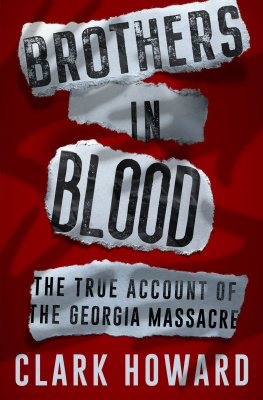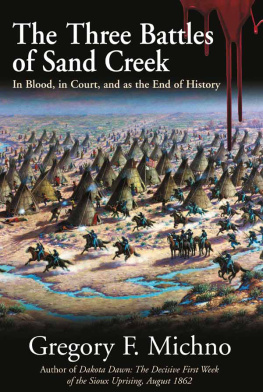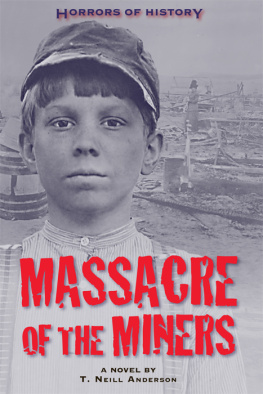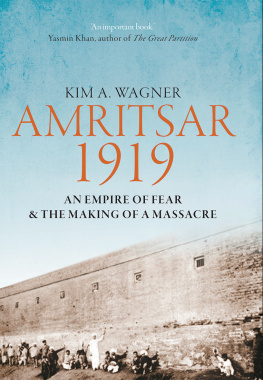BLOOD ISLAND
An Oral History of the
Marichjhapi Massacre
Deep Halder

Baba,
without you this book would not have been written.
Rebellions were begun by people who had not read Das Capital or the Red Book. It was their reality that had urged them into rebellion.
Manoranjan Byapari
Contents
HOW THEY KILLED THE DREAMERS IN THE SUNDARBANS
T his book is about an island time forgot. It is also about my oldest memory; a memory that is both a fairytale and a bad dream. This book is about Marichjhapi.
Marichjhapi, as cold fact and sweet lullaby, comes to me at unexpected hours when the TV ticker screams that India will deport Rohingyas or a new story on Syria brings out that old photograph of Alan Kurdi yet again to tug at heartstrings. Even almost forty years after I first heard the story of Marichjhapi, such references take me back to an unending farm with coconut and palm trees, ponds and paddy fields, and an abiding memory of a dark secret shared in whispers as a bedtime story. Its amazing how the most horrific sits pretty with what is serene.
I become my child self again at times like this, playing inside a two-storeyed house sitting in the middle of the seven bighas of land that used to be my weekend getaway. My grandfather, a deputy magistrate in the British-ruled undivided India, had settled in the western half of Bengal after Partition, the part that had remained with India. In his travels across the newly formed state of West Bengal, he saw in the South 24 Parganas the charms of the land hed left behind. That land is now Bangladesh.
Taldi is one hour away by local train from the southern tip of Kolkata. It is a place so postcard perfect that my parents would not feel like forcing me back to the city when school reopened after weekends. Our Taldi house became the way it did through months of hard work. The salty soil was made cultivable by manuring it with wagons full of new earth. Fish breeding was my grandmothers department and the three ponds on the property offered almost every variety a Bengali palate could pine for.
Twenty-five miles from Taldi around the time my favourite weekend sport was chasing a spotless white calf into the paddy fields with my grandfathers walking stick thousands of men, women and children were trying to set up their own Neverland and being chased around by officials of the new Left Front government, who were saying the ecology would be destroyed if these refugees succeeded in their endeavour. That place was Marichjhapi; and it came to me as a story through Mana.
Mana herself came unannounced as a distant cousin to look after me and tell me stories. She had a strange tongue and stranger manners. It took me some time to warm up to her, but Mana Goldar had stories for me. Stories from Marichjhapi.
I was too young to know what rape was or fathom the full import of the word refugee. Though it was spoken many times in the house with reference to Mana in the adult conversations held around me, no one explained to me who or what a refugee is. Looking at Mana, I thought a refugee was one who had no place to go. Mana said her first home had many refugees.
She was born into, and named after, Mana Camp in faraway Dandakaranya, where her parents had been sent after East Bengal became a country for Muslims. They travelled miles to cross the border, hoping that people who looked similar and spoke the same tongue would open their homes and hearts to them, only to be pushed into the hot, humid north. It was in this squatters colony that Mana was born, where refugees toiled day and night for meagre wages from sarkari babus. When they protested, their mothers, daughters, sisters and aunts were taken away by sinister men. That was rape, Mana said.
Mana was in her teens when she came to stay with us. She had spent her first twelve years in Dandakaranya and one in Marichjhapi. It was a hard word for me to say, so Marichjhapi became mud island in her stories, an island of wet soil. Her last home, she said, was always covered in mud and they wore no slippers.
There were no sarkari babus in Marichjhapi. Men sang and women danced as the sun sank into the sea. Hope was enough to hold on to during those difficult days they spent turning a barren island into a home.
But it all had to end. The resident deity, Bonbibi, didnt hear our cries, Mana had said as she wiped her tears.
The darkness in her eyes as she told me her tale cemented a bond that stayed. Mana left us in eight months, but Marichjhapi kept coming back to me; in stray conversations and chance meetings, the gravity of the horror gradually unfolding.
As recently as 2017, Marichjhapi slithered into my consciousness in a Bhopal newsroom, of all places during a conversation with my colleague Mokapati Poornima. She is a deep diver into lost causes; a star reporter in the newspaper I edited at the time, she travelled the length and breadth of Madhya Pradesh to scoop out stories of despair and distress.
I asked her once why she risks life and limb for her job and she said her ever curious gene must have come from her mother, who travelled from Bangladesh to Calcutta, Calcutta to Dandakaranya, Dandakaranya to the Sundarbans and back to Dandakaranya again in search of hearth and home.
Sundarbans? Where in the Sundarbans? I enquired.
There is a place called Marichjhapi, sir. Bengali refugees had settled there once.
Your mother is Bengali? was all I could ask. Poornima nodded.
I then dialled Jyotirmoy Mondal, a rights activist, an old source for stories and a family friend. Mondal knows of the horrors of Marichjhapi firsthand, having witnessed the growth of the cottage industry around the tragedy and the poverty many of its survivors still lived in, even as governments bluffed and fell.
Tell me again what happened, I said. There was an urgent need in me to hear it all again, revisit stories Id half grasped as a boy and kept putting together piece by broken piece in later years.
Mondal never tires of retelling Marichjhapi. Refugee settlement was never meant to be easy. How do you handle swarms crossing over from Bangladesh to West Bengal? The problem was, when they were in Opposition, Left leaders told the Bangladeshi Hindu refugees, who were being packed in hordes to squatter camps in Dandakaranya, that if they came to power they would bring them back to West Bengal. But once in power, they backtracked.
Feeling betrayed by bad politics and fed up with the miserable living conditions in the camps in Dandakaranya, some refugees came and settled in the tiny island of Marichjhapi in the Sundarbans. For eighteen months they toiled to turn mud island into a habitat. For eighteen months, the government tried many times to evict them.
When your father and a few other scholars, intellectuals and journalists went there, they found Marichjhapi to be one of the best developed islands in the Sundarbans. The refugees did not ask the government for money, nor did they squat on others property. They only wanted a marshy wasteland.
But between 14 and 16 May 1979, in one of the worst human rights violations in post-independent India, the West Bengal government forcibly evicted around 10,000 or more from the island. There was rape, murder and poisoning. Bodies were buried in sea. Countless were killed even as some escaped, too afraid to tell the tale. At least 7,000 men, women and children were killed.
But what about those who escaped the carnage? I asked him.
You know some of them, dont you? he replied.
Mana, I whispered, to which he said, Not just her.
And no, it isnt just Mana Goldar. I have, over the years, collected Marichjhapis broken fragments and tried to make it whole again. Researchers have taken Marichjhapi to Oxbridge lecture circuits. Sociologists, historians and Dalit activists have put out theories on what happened and why. Amitav Ghosh has fictionalized Marichjhapi in his book,
Next page








